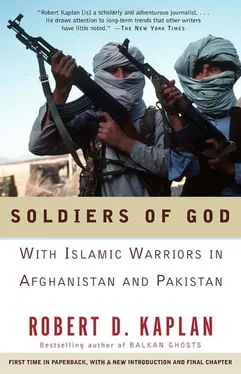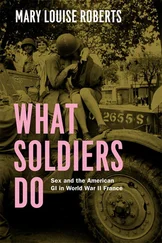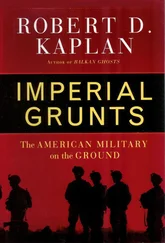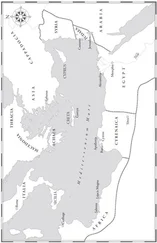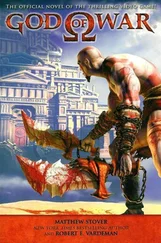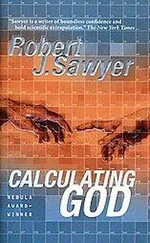By mule, the fighting in Afghanistan was at least several days of hard traveling from a television satellite transmission station, sometimes as far as several weeks. Had the Soviets invaded Afghanistan in the 1950s, before the satellite age, the war might have seemed less remote and certainly would have garnered more attention than it did in the 1980s.
CBS News based a full-time cameraman, Kurt Lohbeck, in Peshawar. He was one of the handful of journalists who repeatedly risked their lives for several years running in order to cover the war from inside. Lohbeck used to say that part of his “soul was up in those mountains, and you have to go back there and check on yourself from time to time.” But none of the American TV networks had a bureau for a war in which — according to a study by the University of Geneva in Switzerland and the Gallup organization in Pakistan — a superpower killed 1.3 million people. That is more deaths than in the Iraq-Iran war and ten times more than the number killed in Lebanon in all the years of civil conflict there since 1975. The Israelis would have to repeat their 1982 invasion of Lebanon seventy-five times over before equaling the Kremlin’s Afghan carnage.
Five and a half million Afghans were made refugees in Pakistan and Iran, a third of the prewar population of the country. In the 1980s, one out of two refugees in the world was an Afghan. Considering that another two million Afghans were forced by the war to migrate within the country, no conflict since the end of World War II created more homeless people save for the 1971 Bangladesh war.
The bloodiest year in Afghanistan was 1985, the first year of Mikhail Gorbachev’s rule in the Soviet Union. In that year, according to a survey conducted by Swedish relief experts, well over half of all the farmers who remained in Afghanistan had their fields bombed, and over a quarter had their irrigation systems destroyed and their livestock shot by Soviet or Afghan Communist troops.
Lars Grahnstrom, a shy, relaxed Swedish nurse with piercing blue eyes, arrived in Afghanistan a few weeks after Gorbachev came to power. Grahnstrom spent six months with four other male nurses and doctors in a cave near the Soviet-held city of Mazar-i-Sharif. They treated over a hundred patients a day, the majority of whom had war-related injuries. This was in the extreme north of Afghanistan, where the fighting was heaviest. “In the little part of Afghanistan where I lived, there were more people killed while I was there than in South Africa or Lebanon the whole year,” Grahnstrom said. “Every day I listened to the news on my short-wave radio. It was always South Africa, Lebanon, Sri Lanka — two people killed here, three killed there… I was always hoping to hear something about Afghanistan. But there was nothing.”
In his book Under a Sickle Moon, the British travel writer Peregrine Hodson recalled his three months in Afghanistan: “Every evening we tuned in to the [BBC] World Service but there was no mention of any new offensive in the Panjshir Valley. It was disturbingly unreal to be caught in the middle of a forgotten war. At times it was like being in the grip of a massive hallucination: living on nuts and berries in a cave, being bombed by Soviet jets.”
The Soviet bombing had little effect on the mujahidin. By 1987, it seemed that the Soviets’ last, best hope was to destabilize the guerrillas’ rear base, over the border in Pakistan. The State Department reported 127 terrorist incidents in Pakistani cities that year, resulting in 234 deaths — more than in any Middle Eastern country. Pakistan suffered one third of all the fatalities and one half of all the wounded in terrorist attacks worldwide in 1987.
The terrorists whom the Pakistani police managed to capture testified to working for the Afghan Communist Bureau of State Security, Khedamat-e Aetelaat-e Dawlati, known as KhAD. Neither the State Department nor any Western diplomat in Pakistan had any doubt that this was true. KhAD (which has been called the WAD Ministry of State Security since 1988) had been built up by the KGB into a force of 25,000 agents soon after the Soviet invasion, and about 1,500 Soviets were thought to be working at KhAD’s Kabul headquarters. According to State Department officials, KhAD was the largest known sponsor of terrorism in the world, next to which the record of Abu Nidal and other Palestinian terrorists was — until the December 1988 bombing of the Pan American jetliner — statistically insignificant.
In the same week in April 1988 that the Soviet Union signed an agreement in Geneva to withdraw its troops, terrorists blew up an ammunition depot outside the Pakistani capital of Islamabad, killing one hundred and injuring more than one thousand people. It was one of four terrorist incidents in Pakistan over a forty-eight-hour period. The equipment destroyed at the depot was destined for the mujahidin. It included a large shipment of primacord, a rocket-fired cable that explodes two feet above the ground, used to clear a path through minefields.
This would have been the first mine-clearing equipment that the mujahidin received. Indeed, throughout the Soviet occupation the only such “equipment” that the guerrillas ever had was the winter hail, dubbed “Allah’s mine sweeper” because the crashing pellets of ice sometimes triggered the mines.
Hundreds of journalists covered the signing of the Geneva agreement. Close to a hundred more arrived in Kabul afterward to watch the start of the Soviet withdrawal on May 15, 1988, when the press began to speculate about the return of the five and a half million refugees.
A month later, in Nangarhar province near the Pakistan border, I encountered a group of refugees ascending a mountain with nothing but the clothes on their backs. They asked me for water from my canteen, something Afghans rarely do unless they are ill. The refugees were not walking back to their homes in Afghanistan but leaving them. Soviet jets had bombed their village in the Kot Valley south of Jalalabad a few days earlier, killing thirty-four people. This was nothing unusual; since the start of their withdrawal, the Soviets had been bombing civilian areas around major cities in order to create free-fire zones where minefields could be extended and invading mujahidin units easily spotted. The Soviets were determined not to leave Afghanistan “clinging to helicopters,” like the Americans in Vietnam. Anyway, the idea of millions of refugees returning home while millions of mines littered the countryside was considered absurd by relief workers in Peshawar.
None of this mattered, however. As soon as the Red Armywithdrawal commenced, even as the Soviets were still dropping mines and bombing villages, the press shifted elsewhere what limited attention it had bestowed on Afghanistan. (Only at the conclusion of the Soviet withdrawal, in February 1989, did the media tune in.) “Afghanistan is already being forgotten,” lamented Zia Rizvi, a top UN official involved in the refugee repatriation program. “The worst enemy of the Afghan refugees is the short memory of world public opinion.”
Everybody in the West was at least aware of Afghanistan, and regarding the role of the Soviets, most people probably assumed the worst. But even for these people, the war was an opaque presence half a world away. It wasn’t felt with the immediacy of other news. Political conservatives in America believed the fault rested with the liberal media. There was certainly an element of truth in this, but less than was thought. And it wasn’t a revealing truth: liberals I knew cared deeply about this war and occasionally risked their lives to report it.
Even from Peshawar, thirty-five miles from the Afghan border, the war was, in a visual sense, inaccessible. Television cameramen trekked for weeks on little food, only to return ill and half starved, with almost no footage that could compete against the heartbreaking backdrops of black townships in South Africa or the spectacle of a hijacked jumbo jet on the tarmac at a Mediterranean airport — images that people in the West could immediately relate to. Though a few journalists managed to get close to the fighting, the war was never brought close to the audience. Over a million were killed, but there were no images of epic battles, as there were in the Middle East, or of mass death, as in Ethiopia.
Читать дальше
